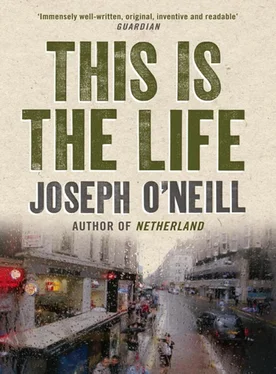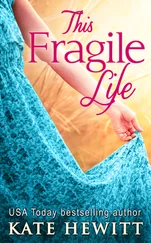Yes, I think that I am right. I think that, for once, and at last, I have hit the nail on the head. Donovan had wanted to woo Arabella by reminding her of the good times they had had together, unforgettable magical moments and blissful dawns; but he had simply been unable to: he had not stored away any such times. When he had tried to dig up a few episodic souvenirs, a telling memento of his love for her, his mind had gone blank. For once that beautiful memory of his, that golden bin, had let him down.
It all makes sense: that is why he had not recognized me at that party and yet still was able, years later, to remember my name and the name of the firm I worked for. His mind was too crammed with words to accommodate the face of James Jones. James Jones and Batstone Buckley Williams , yes, that was no problem, he could slot those appellations in with all the other case-names, theories, laws, languages and other semantemes he had stashed away — but James Jones himself, the little guy with the bald head, chubby neck and wrinkly suits? The fellow who leaned towards kebabs, daydreams and late-night taxis? Sorry, full up. The same thing applied when he came to write my reference: once I had finished my pupillage, out came the mental eraser. He had rubbed me out of his life.
Donovan does not even know who I am!
Now I am beginning to see how Arabella must have felt. If she formed no significant part of Donovan’s memories, how could she be said to exist for him? She could not, is the answer. Donovan had reduced her to a thing of naught. Yes, and if I think about it, that is how Donovan has made me feel about myself. Like a zero, a nullity, because whatever I did for the man glanced off the surface. It was as though he was composed of bumper rubber — you bounced off him, nothing you could do could leave a dent. And if you cannot leave a dent somewhere, who is to say you are anywhere at all?
It is the middle of the night and rays are arriving in my room. A new day — and, it might be thought, the time to say, Enough. That is enough about Donovan. No more. The water has flowed under the bridge.
I agree. I too think that it is over between us, that it is time for a divorce. But although I am letting Donovan go, I am not going to let him off. No; he may think that everything is hunky-dory, but most assuredly I do not. There is one last matter to deal with before I acquit him: he has to face the charge that he, Michael Donovan, did ruin the life of James Jones. Yes, it is time that the action of Jones v. Donovan was commenced.
Members of the jury, I am the plaintiff in this matter. I am the one who has suffered loss and damage — look at me, look how I have ended up, writing furious nonsense in the middle of the night, my career in ruins, my favourite women alienated, myself in turmoil, my world flat and lustreless. Members of the jury, I will show that the cause of all this sits over there — Michael Donovan.
Donovan comes in at this point. I can see him getting to his feet to make, in his warm, inevitable voice, two points. Number one: my life was not ruined. In fact, I had suffered no lasting loss at all. My career was recoverable, as were my friends. The turmoil of the past months I would soon get over. Number two: there was a problem of liability. Even if my life was in ruins (which he denied), he, Donovan, was not to blame. My downfall was my own fault. The facts spoke for themselves: he came to me as a client and, unbeknown to him, this triggered off a whole set of ridiculous and destructive fantasies on my part, which fantasies had led me to my present position. The problem here was not Donovan, it was me. Donovan could not be blamed for the fact that, when he met me, I was full of dammed-up desires and memories. He could not be blamed for the neurotic symptoms I was displaying because this repressed material had suddenly been released. That was his case: why should he be responsible for my character deficiencies?
Here Donovan regains his seat, an amiable, confident look on his face. I say nothing to this, but I do allow a mysterious smile to play on my lips.
I call my first witness. He comes striding across the court, a good-looking, well-dressed man in his early thirties. I clear my throat and start to my examination-in-chief.
Is your name Oliver Owen?
It is.
You are a barrister in the chambers of the defendant, Mr Donovan, are you not?
I am.
Mr Owen, can you describe the responsibilities of a pupil-master to his pupil barrister — in outline only — please?
Certainly. It is the responsibility of the pupil-master to instruct the pupil in the skills of a barrister. It is also his responsibility to take an interest in the career of his or her pupil.
Thank you, Mr Owen. And would you say that the pupil-master’s responsibilities extend to informing the pupil of the tenancy application procedure in his chambers?
I would.
Unequivocally?
Unequivocally.
Would it be fair to say, Mr Owen, that a pupil who failed to apply timeously to his chambers for a tenancy because he was unfamiliar with the procedure could hold his pupil-master responsible for the detriment he suffers as a consequence?
All other things being equal, I would.
Now, Mr Owen, I would like you to cast your mind back to September 1978. It is a long time ago, I appreciate that.
I remember that month well, it was the month I was taken on as a tenant by 6 Essex Court.
You recall, do you, my own departure from 6 Essex?
I do. It was in the second half of September.
Did, shortly after my departure from your chambers, in 1978, a vacancy arise in your chambers?
Yes. Bernard Tetlow, as the late Lord Tetlow of Heme Hill then was, was appointed to the bench.
(Here the judge intervenes: May I say that it was the start of a most distinguished career on the bench by the Noble and Honourable and much-regretted Lord.) Quite so, my lord, and may I respectfully express my agreement with your lordship’s sentiment. Mr Owen, did the chambers attempt to fill the resulting vacancy?
Yes. We attempted to contact you to offer you the place.
You’re quite sure I would have been offered a place?
Yes. It was the view of chambers that you clearly possessed the necessary energy and intellectual ability.
When did you attempt to contact me?
Throughout October, I believe. We rang every chambers in the Temple, and every firm of solicitors we knew of.
And what were the results of these efforts?
We were unable to find you. It seemed that you had left the Bar. No one knew where you were.
Not even Mr Donovan?
Not to my knowledge.
(At this point I produce Exhibit 1, a letter, and pass it to the witness.) Mr Owen, could you read out the letter please? (He does. It is my reference from Donovan to Batstone Buckley Williams.) The letter is dated 26 October 1978, Mr Owen. Was it at this time that you were searching for me to offer me the tenancy?
(Oliver looks put out.)
Yes, I …
And what is your response to that fact, Mr Owen? (Again, Oliver looks uncomfortable.)
I must say, I am very surprised to read this letter. Mr Donovan must, or in any event should, have known that we were trying to locate you. He should have told us where you were.
Thank you, Mr Owen, I have no further questions.
(Another glass of wine while I watch Donovan cross-examine. Having long since scrubbed from his mind the business of my tenancy, he has been caught napping. He feebly puts a few questions to Oliver. They are the usual questions — can you be sure of all of this after such a length of time, etcetera — and they cut no ice. Donovan sits down with an expression of bafflement on his face: how could this be happening to him?)
Читать дальше
Конец ознакомительного отрывка
Купить книгу












